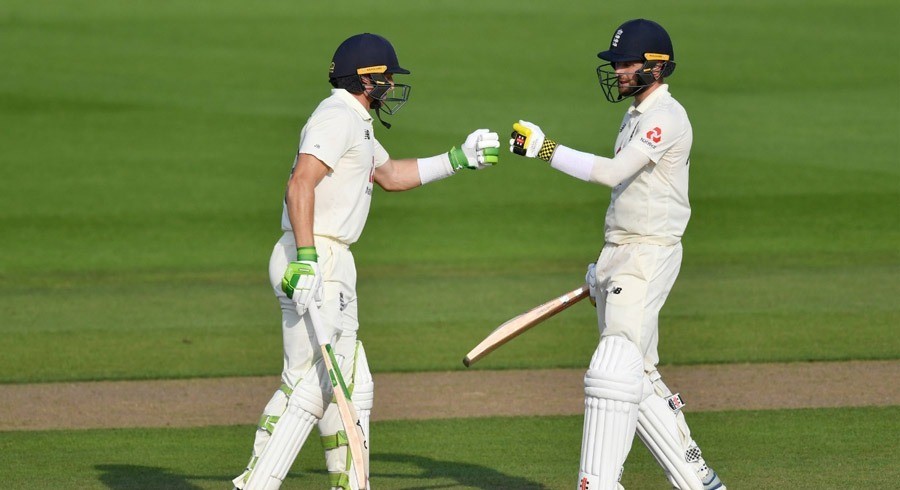Manchester Test was a brilliant advertisement for the red-ball game
 PHOTO: REUTERS
PHOTO: REUTERS
England's dramatic three-wicket win over Pakistan in the first Test at Old Trafford was a brilliant advertisement for the red-ball game.
Pakistan, despite not having played international cricket for several months because of the coronavirus, dominated the majority of the match and were still favourites when they reduced England to 117-5, chasing a target of 277, on Saturday's fourth day in Manchester.
But Jos Buttler (75) and Chris Woakes (84 not out) took the game away from the tourists in a sixth-wicket partnership of 139.
Below AFP Sport looks at three key learnings from an enthralling first chapter of a three-match series:
Woakes works wonders
Although he recently reached the landmark of 1,000 runs and 100 wickets in fewer Tests than West Indies hero Garfield Sobers, arguably cricket's greatest all-rounder, or England colleague Ben Stokes and has a better bowling average in England than either James Anderson or Stuart Broad, there has been a tendency to regard Chris Woakes as a 'nearly man'.
So it was no surprise that his omission from England's first Test against the West Indies last month generated little comment.
The affable Woakes is not one to moan publicly about his lot, sometimes to his own detriment.
Yet Woakes has since taken 15 wickets for England at a shade under 16 apiece.
Woakes had, however, averaged a meagre 5.22 runs with the bat in his six previous Tests. But, with England in trouble, he hit his highest Test score since an unbeaten century against India at Lord's in 2018.
The astute Warwickshire all-rounder wanted to make sure the second new ball did not become a factor so went on the attack and countered the short ball by making room to hit through the off-side.
Plenty of orthodox cover-drives followed in a fifty that came from just 59 balls.
And when Buttler was out, Woakes finished the job.
"He's Mr Dependable," Root said of Woakes. "He's someone you can always trust to deliver exactly what you want."
The Buttler paradox
This match saw Buttler make a case for both why he should be in and out of the England Test side.
Utilising the run-chasing skills that make him such a formidable batsman in one-day cricket, Buttler and fellow World Cup-winner Woakes turned the tide when Pakistan were on the brink of victory.
Yet they would have been chasing considerably fewer runs to win had not wicketkeeper Buttler dropped and then missed a chance to stump Shan Masood when the opener was on 45 in Pakistan's first innings.
Masood went on to make a Test-best 156, with Buttler's keeping in marked contrast to that of impressive Pakistan gloveman Mohammad Rizwan.
To his credit, Buttler didn't let England's victory stop him from confronting the issue.
"I know it's not good enough as an international wicketkeeper," he said. "If I am going to continue to be a wicketkeeper in this team, I'm going to have to be better."
Masood's persistence rewarded
When Masood toured England in 2016 he averaged a lowly 17.75.
But he kept working on his game during more than a year of international exile and the now 30-year-old demonstrated great discipline and shot-making during a near eight-hour 156.
In the process, Masood joined head coach Misbah-ul-Haq as one of just six Pakistan batsmen to have scored a hundred in three consecutive Test innings.
"It was good application and his hard work has paid off," said Misbah. "Now he has proved himself here in England."